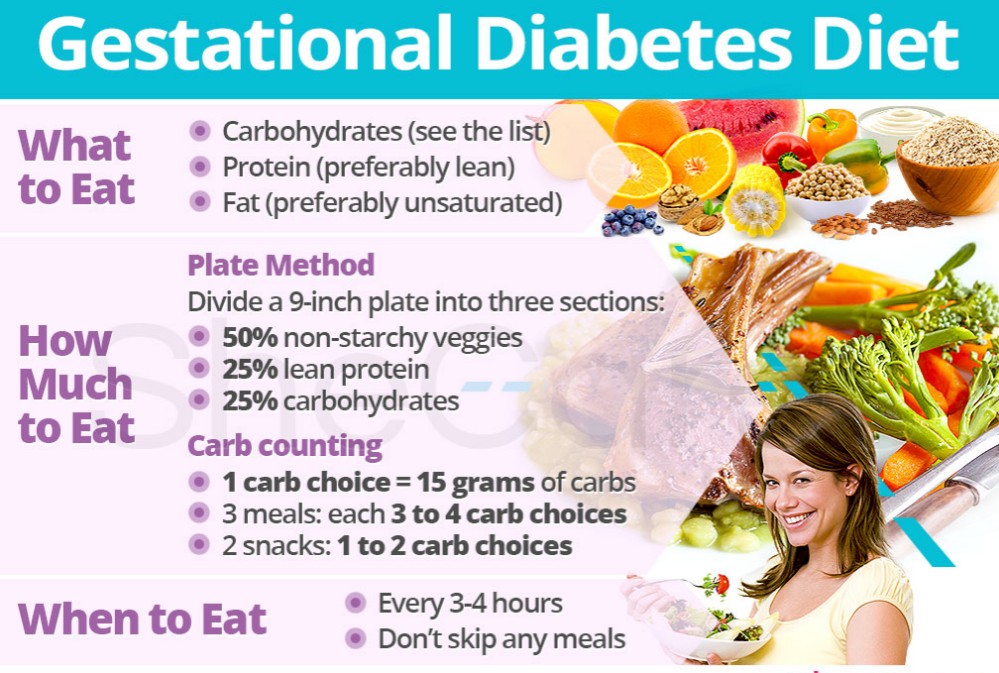Gestational Diabetes
Gestational diabetes mellitus (GDM) is a seasonal illness, and a form of diabetes that develops in women during pregnancy when there’s a sudden rise in sugar level, and when such women are not diabetic before pregnancy.
When a pregnant mom has gestational diabetes, she should adjust her plan to stay safe and healthy.
However, we recommended you consult with your doctor or dietician for personalized dietary recommendations.
What are Good Foods to Eat if you have Gestational Diabetes?
To eat healthy with gestational diabetes mellitus (GDM), it is important to follow a balanced and healthy diet that consists of high-fiber foods, fruits, and veggies.
A pregnant woman can reduce the risks of the illness by maintaining stable blood sugar levels limiting fast food, and sugary foods, and supporting a healthy pregnancy.
If you’re planning healthy food for gestational diabetes, you should focus on high-fiber, nutrient-dense carbohydrates such as whole grains, legumes fruits, and vegetables.
Include protein-rich foods such as lean meats, poultry, fish, eggs, dairy products, and beans in your healthy food ideas for gestational diabetes.
You can take any of these as part of your healthy meal plan for lunch for GDM.
Eat healthy fats such as olive oil, avocado, and nuts during pregnancy.
Also, you should eat a small chunks of food at a time, and eat frequently throughout the day to help manage your blood sugar levels.
Limit sugary drinks and alcohol.
Limit simple carbohydrates such as sugar, white flour, and candy.
Work with a registered dietitian to create a meal plan that meets your specific needs.
Remember, every pregnancy is unique, so it’s important to consult with your doctor or dietitian to determine the best eating plan for you.
Best Fruits to Eat for Gestational Diabetes
Fruits should be on your list of foods to eat with gestational diabetes. It should be in your daily and weekly meal plan and should be consumed in moderation.
Some fruits to include in your diet menu are the following:
Berries: Fruits such as strawberries, blueberries, raspberries, and blackberries are considered healthy food choices for GD. Berries are low in sugar and high in fiber, antioxidants, and vitamins.
Citrus fruits: Oranges, grapefruits, and lemons are low in sugar and high in fiber and vitamin C.
Apples and pears: Both fruits are high in fiber and are a good source of vitamins and minerals.
Kiwi: a small, nutrient-dense fruit that is low in sugar and high in fiber, vitamin C, and potassium.
Peaches, plums, and nectarines: These fruits are low in sugar and high in fiber, vitamins, and minerals as well.
However, you should eat these fruits in moderation as they still contain sugar, and you wouldn’t want to shoot up your sugar level.
It’s recommended to limit serving size to one small fruit or 1/2 cup of chopped fruit per meal.
Your doctor or dietitian can help you determine the right amount, and also prepare a 7-day meal plan for you.
Meal and Snack Ideas for Gestational Diabetes
The following are good gestational diabetes snacks you can try for your breakfast, lunch, and dinner.
You can take any of the above-mentioned healthy fresh fruits with a handful of nuts in your breakfast.
You can take greek yogurt with berries in your lunch or take whole grain crackers with cheese or hummus to level up your energy level.
Hard-boiled eggs with vegetable sticks with a low-fat dip are also a good choice for breakfast and lunch.
For your dinner, take roasted chickpeas and Air-popped popcorn if you don’t get much hungry at night.
For some pregnant women that take late-night meals, you can take rice cakes with peanut butter, smoothies made with milk, frozen berries, and a tablespoon of nut butter.
What’s most important in pregnancy snacks you choose are the high fiber and protein contents, which can help regulate your blood sugar levels.
It is recommended to eat regularly spaced meals and snacks to maintain stable blood sugar levels.
